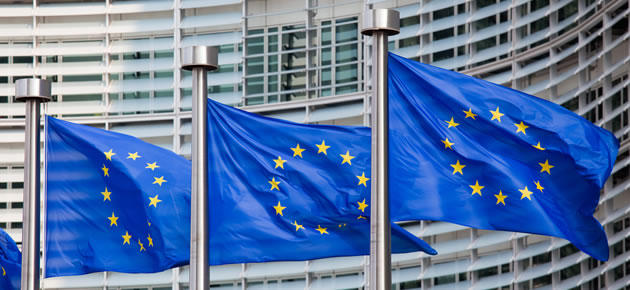The Euro softened against the Canadian Dollar on Monday as tensions in Ukraine and disappointing inflation data weighed upon the Euro.
Earlier in the session the Euro softened after data released by the Luxembourg based European Union statistics office, Eurostat, Euro-area inflation slowed unexpectedly in February, spooking investors and putting pressure back onto the European Central Bank after policy makers dismissed the threat of deflation last week.
The report showed that consumer prices in the region grew by 0.7%, worse than the 0.8% figure expected by economists.
The Euro wasn’t too badly affected by the imposition of sanctions by the EU against Russia. The EU announced sanctions against 21 officials after a meeting of foreign ministers in Brussels. That could change over the coming days however after Lithuania’s foreign minister Linas Linkevicus tweeted that further measures are expected to be announced over the next few days.
In Canada, data showed that foreign securities purchases advanced by $1.09 billion in the first month of the year, below expectations for a figure of $3.24 billion. Despite that the figure was better than December’s reading of -$4.28 billion.
The ‘Loonie’ also found support from a rise in oil prices. The tension in Ukraine has heightened concerns of a potential shortage of the commodity and the disruption of supply from Libya has also added to the price.
“If there are more aggressive moves by Russian troops, we’ll see a reaction in prices,” Richard Mallinson, an analyst at Energy Aspects Ltd. in London, said yesterday. “Markets are watching the situation very closely.”
Tomorrow sees the publication of the latest Eurozone trade balance data. A positive figure will likely offer support to the single currency.
Euro (EUR) Exchange Rates
[table width=”100%” colwidth=”50|50|50|50|50″ colalign=”left|left|left|left|left”]
Currency, ,Currency,Rate ,
Euro, ,US Dollar,1.3943 ,
,US Dollar,1.3943 ,
Euro, ,British Pound,0.8366 ,
,British Pound,0.8366 ,
Euro, ,Australian Dollar,1.5330 ,
,Australian Dollar,1.5330 ,
Euro, ,Canadian Dollar,1.5432 ,
,Canadian Dollar,1.5432 ,
[/table]



